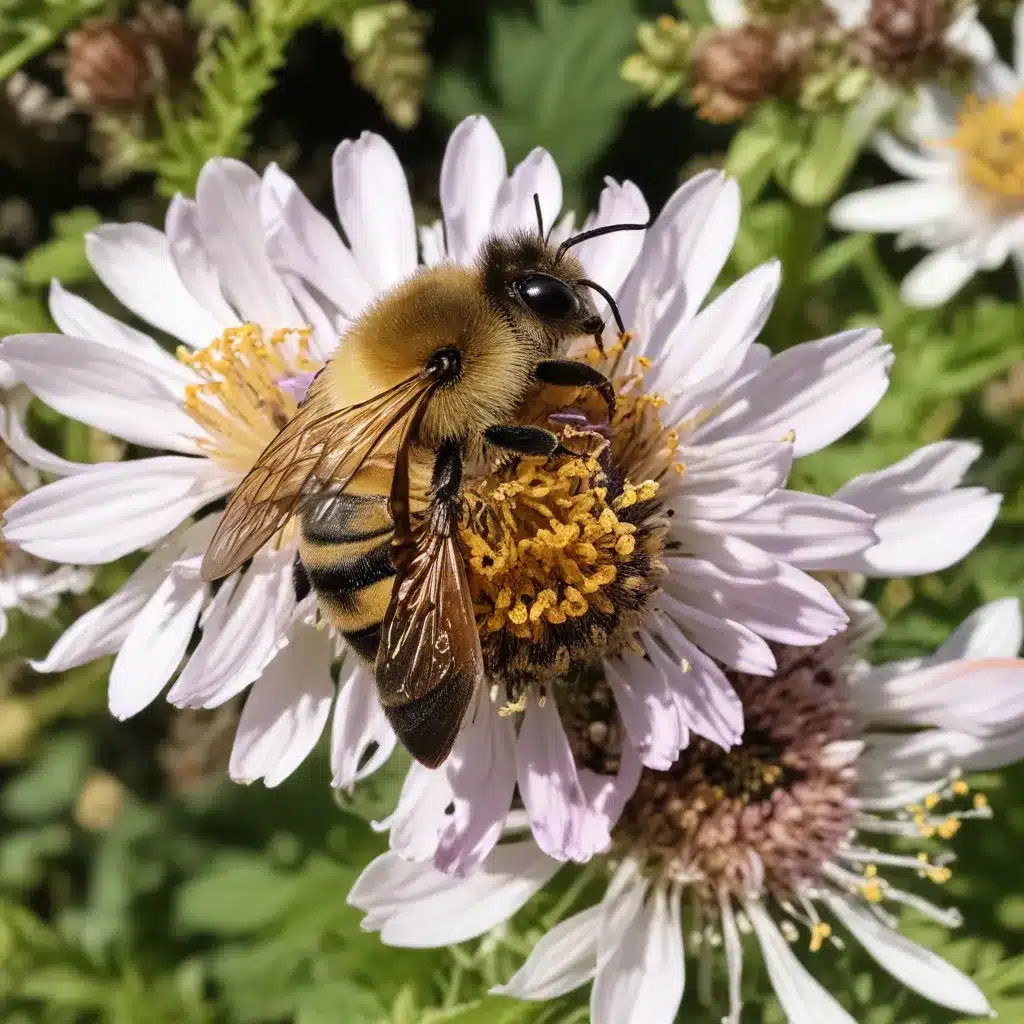
Cultivating a Pollinator-Friendly Community
In recent years, the decline of pollinator populations, such as bees, butterflies, and hummingbirds, has become a growing concern. These essential creatures play a vital role in the health of our ecosystems, responsible for the pollination of three-quarters of the world’s flowering plants, including many of the fruits and vegetables we enjoy. At Stanley Park High School, we’re committed to doing our part in supporting these crucial pollinators and creating a thriving, bee-friendly community.
The Importance of Pollinators
Pollinators are animals and insects that help spread pollen from one plant to another, a process known as pollination. This process is essential for plant reproduction, allowing plants to produce the next generation of seeds, fruits, and vegetation. Without pollinators, many of our favorite fruits, vegetables, and flowers would struggle to survive.
Pollinator populations have been declining in recent years due to a variety of factors, including habitat loss, pesticide use, and climate change. This decline has far-reaching consequences, not only for the health of our local ecosystems but also for the food we depend on. That’s why it’s more important than ever to take action and create pollinator-friendly environments.
Building a Pollinator-Friendly Garden
One of the most effective ways to support pollinators is by creating a pollinator-friendly garden. Whether you have a large backyard or a small patio, there are numerous steps you can take to attract and support these essential creatures.
Diverse Plantings
The foundation of a pollinator-friendly garden is a diverse array of nectar and pollen-rich plants. By including a variety of flowering species that bloom at different times throughout the growing season, you can ensure that pollinators have a reliable food source from early spring to late fall.
Some excellent pollinator-friendly plant options for our region include:
– Native wildflowers like Coneflowers, Black-eyed Susans, and Milkweed
– Herbs such as Lavender, Thyme, and Rosemary
– Flowering shrubs like Lilacs, Serviceberries, and Sumac
– Trees that provide early spring blooms like Willow, Hawthorn, and Crab Apple
When selecting plants, be sure to choose species that are native to your local area, as they are best suited to support the pollinators in your region.
Reduced Mowing
Another important step in creating a pollinator-friendly garden is reducing the frequency of lawn mowing. By allowing areas of your lawn to grow taller and letting native wildflowers like Clover and Dandelions flourish, you can provide pollinators with a valuable source of nectar and pollen.
Aim to mow your lawn every three to four weeks, maintaining a grass height of at least 3 inches. This simple change can have a significant impact on the health and diversity of pollinators in your garden.
Nesting Habitats
In addition to food sources, pollinators also need safe and secure nesting sites. By providing these habitats, you can support the complete life cycle of these essential creatures.
Some ways to create nesting habitats include:
– Leaving areas of bare, undisturbed soil for ground-nesting bees
– Building or purchasing a bee hotel, made of hollow stems or drilled wood, to provide shelter for solitary bees
– Allowing dead wood and leaf litter to accumulate in certain areas, creating homes for various pollinators
By incorporating these features into your garden, you’ll be providing pollinators with the resources they need to thrive.
Reducing Pesticide Use
Perhaps one of the most important steps in creating a pollinator-friendly garden is to reduce or eliminate the use of pesticides. Many common insecticides and herbicides can be highly toxic to pollinators, causing harm or even death.
Instead of relying on chemical solutions, consider using natural pest control methods, such as hand-picking pests, introducing beneficial insects, or using organic, pollinator-safe products. By reducing your use of harmful chemicals, you’ll be creating a safer, healthier environment for pollinators to flourish.
Community Engagement and Outreach
At Stanley Park High School, we believe that creating a pollinator-friendly community is a shared responsibility. That’s why we’re committed to engaging with our students, families, and the broader community to promote bee-friendly gardening practices.
Pollinator-Friendly Landscaping
As part of our commitment to supporting pollinators, we’re working to transform the landscaping around our school campus into a pollinator-friendly oasis. By incorporating native plants, reducing mowing, and providing nesting habitats, we aim to create a model for the rest of the community to follow.
We encourage all members of the Stanley Park community to take inspiration from our campus and implement similar pollinator-friendly practices in their own gardens and outdoor spaces. Together, we can create a network of pollinator-friendly habitats that support the health and well-being of these essential creatures.
Educational Initiatives
In addition to our landscaping efforts, we’re also dedicated to educating our students and the broader community about the importance of pollinators and the steps we can all take to protect them.
Throughout the school year, we’ll be hosting a variety of educational events and workshops, covering topics such as:
– The role of pollinators in our ecosystems
– Identifying common pollinator species
– Selecting the best plants for pollinators
– Creating nesting habitats and reducing pesticide use
By empowering our community with knowledge and practical skills, we hope to inspire everyone to become active stewards of our local pollinator populations.
Getting Involved
Whether you’re a student, a parent, or a member of the broader Stanley Park community, there are countless ways you can get involved in protecting our pollinators. Here are a few ideas to get you started:
- Visit the school’s website to learn more about our pollinator-friendly initiatives and upcoming events.
- Incorporate pollinator-friendly plants and practices into your own garden or outdoor space.
- Participate in our community gardening days, where we’ll be working together to create and maintain pollinator-friendly habitats.
- Spread the word and encourage your friends, neighbors, and local businesses to join the effort in supporting our pollinators.
By working together as a community, we can make a real difference in the lives of our pollinators and ensure a healthy, vibrant future for Stanley Park and beyond.

